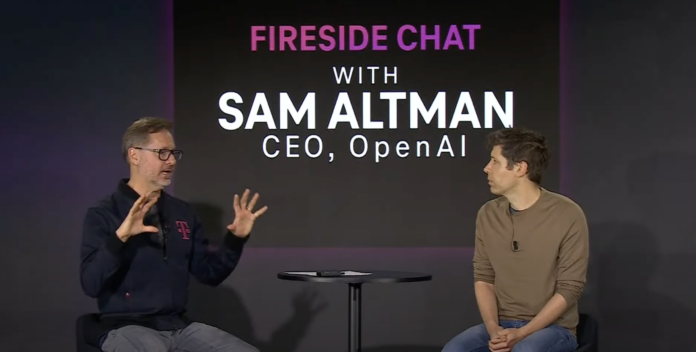Working with OpenAI, T-Mobile US is trying to deliver predictive, “fairly magical” customer experiences
T-Mobile US is working with artificial intelligence (AI) powerhouse OpenAI on a new customer-facing “intent-driven AI-decisioning platform.” The companies expect IntentCX, which combines T-Mo’s proprietary data with OpenAI’s powerful GPT series of large language models (LLMs), to launch next year. T-Mobile US CEO Mike Sievert, speaking at the company’s recent Capital Markets Day, described the customer experience (CX) strategy as “customer-led, AI-enabled and digital first.”
“Our Un-carrier ethos, our customer-first identity, will accelerate us forward,” Sievert said. “The key ingredient to our success will only get stronger as we transform our business around data and AI, working to perfect every customer journey.”
He contemplated why the wireless industry is so far behind on digitalization, adding that no one should have to spend a big piece of their Saturday at a T-Mobile store to make an account change or upgrade a device. “It’s complicated,” he said. But “what is AI all about? If it’s about anything, it’s about making the complicated simple.”
T-Mobile US detailed the following IntentCX deliverables:
- Personalized customer service that builds on its Team of Experts model and leverages AI
- “Comprehending conversations, navigating complex, multi-threaded conversations, and even keeping previous context in mind, in multiple languages. So, every customer feels heard and understood.”
- Proactive actions delivered by connecting IntentCX to T-Mobile’s “transaction and care system” to autonomously identify customer needs and deliver solutions.
- Real-time correlation and decisioning accomplished by comparing network and service data with inbound network or service complaints.
- Faster response time based on a scalable platform capable of managing “thousands of conversations and hundreds of actions simultaneously.”
- Providing robust privacy and security measures for every transaction.
OpenAI CEO Sam Altman said in a statement, “T-Mobile deeply understands how to delight customers, and is driven to deliver better, more personalized solutions. We’re thrilled to partner with them to build faster, more intuitive, and accessible experiences for millions of people.”
Altman expanded on AI for CX in a fireside chat with Sievert. He said OpenAI’s new generation of models can do “personalization for an individual, user or customer…These models will be able to look at a huge amount of data and use a huge amount of tools and access a huge amount of systems and deliver these, hopefully, fairly magical experiences.”
During the strategy event, Sievert said digital engagement requires a digital platform which, for T-Mobile US, is called T-Life. He called T-Life a “lifestyle app” that includes account management features, lets subscribers interface with the company’s rewards program, and otherwise serves as a primary touchpoint for customer engagement. Sievert said the app is on track for 40 million active users this year, and it replaces “dozens of applications between T-Mobile and our partners.”
T-Life will serve as a data source for IntentCX which fits with this larger idea of using AI to turn data into action. Sievert said T-Mobile US has “rethought” its data estate alongside its AI strategy. “The way to deliver real value in the AI era is to unlock individualized experiences for customers informed by the data in a way that humans could never do in real time. This is about automating engagement, informed by the data…Customers are ready for this.”
Also on the AI front, T-Mobile US is working with NVIDIA to bring GPU-accelerated computing into its radio access network (RAN) for network optimizations and customer-facing services. Also working with RAN vendors Ericsson and Nokia, T-Mobile US is exploring how GPUs can be used for things like radio processing and spectrum management, then excess capacity can be used for a GPUaaS-type service.

